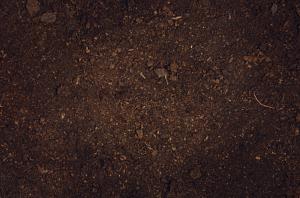How Would Salt Water Most Likely Affect Plant Cells?
Plant cells are made up of various structures, including a cell membrane, cytoplasm, and nucleus. These structures play an essential role in enabling the plant to function optimally. The presence of salt in water can influence the plant cell's behavior and affect the plant's growth and development. This article explores how salt water can affect plant cells and what impact it has on plant growth.
The Effect of Salt Water on Plant Cells
Plant cells need water to survive. When faced with saltwater, plant cells have to adjust to the presence of salt within the water. The salt concentration in the water can disrupt the plant cell's ability to absorb water. Saltwater has the potential to draw water out of plant cells, making them shrink and dry up.
The salt concentration in the water can also affect the plant cell's cytoplasm, making it saltier. This can cause osmosis to occur, where water moves from the plant cell into the saltwater, leading to dehydration. The higher the concentration of salt in the water, the greater the dehydration effect on the plant cells.
How Salt Water Affects Plant Growth
Saltwater affects plant growth in various ways. Firstly, saltwater can slow down or even stop the plant's ability to absorb water, causing the plant to begin to wilt. When plants can't get enough water, they will start to have stunted growth and their leaves may begin to curl up or shrivel.
The negative effects of saltwater on plant growth can also be seen on a molecular level. It can interfere with the plant's essential metabolic processes, including photosynthesis. Saltwater can disrupt the balance of ions in the plant cell, making it more difficult for the plant to produce energy from sunlight effectively.
The Impact of Salty Soil on Plant Growth
The effects of saltwater on plant cells and growth can be further exacerbated when the soil in which the plant is growing becomes saline. This can occur when irrigation water contains high levels of salt or when the soil has been contaminated with salt. The excess salt in the soil can lead to a build-up of salt concentration around the plant roots, which can make it challenging for the plant to absorb water and essential nutrients.
The presence of salt in the soil also makes it more difficult for new plants to grow. Saltwater can damage the soil structure, which can affect the microorganisms that live in the soil that help plants to absorb nutrients. If the soil becomes too degraded, it can take many years to restore it to an optimal growing condition.
Conclusion
Saltwater can have a significant impact on plant cells and overall plant growth. It can cause dehydration at the cellular level, disrupt metabolic processes, and make it more difficult for plants to absorb water and essential nutrients. When combined with salty soil or irrigation water, the negative effects of saltwater on plants can be further compounded. Therefore, it is essential to be mindful of the salt concentration of irrigation water and soil to avoid plant damage or growth stunting.

 how many times do yo...
how many times do yo... how many planted tre...
how many planted tre... how many pine trees ...
how many pine trees ... how many pecan trees...
how many pecan trees... how many plants comp...
how many plants comp... how many plants can ...
how many plants can ... how many plants and ...
how many plants and ... how many pepper plan...
how many pepper plan...






























